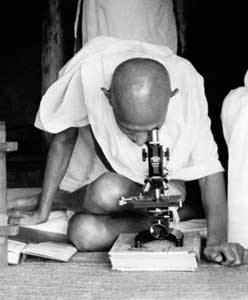doctor with a bomb

Above: Radovan Karadzic, psychiatrist and perpetrator of the Srebrenica massacre and other atrocities in Bosnia. Below: Ikuo Hayashi, a neurosurgeon and one of the perpetrators of the Tokyo subway sarin gas attack.
Yet another doctor has apparently joined the ranks of violent absolutists, as a Jordanian doctor working as a CIA informant turned out to be a double agent, and blew up CIA agents and a Jordanian intelligence agent. This particular man, having blown up a bunch of people who can reasonably be described as combatants, can't be said to be a terrorist as much as a kamikaze, but apparently in the cause of advancing jihadist and terrorist ideology. (Or so says the CIA; take that for what it's worth.)
Still, as Simon Wessely explained in the New England Journal of Medicine in his 2007 essay, "When doctors become terrorists", written just after seven doctors and a medical technician tried to blow up a bunch of stuff in Britain, doctors have been high achievers in the world of terrorism. Ayman Al-Zawahiri, a surgeon, is Al Qaeda's number two. Wessely also reviews the innovator of airplane hijackings in the late 1960s and early 1970s, a Tokyo sarin gas attacker, and one of the main perpetrators of war crimes in Bosnia, as well as those master clinicians of medical mass murder, the many doctors involved in Nazi Germany's atrocities. More recently there was Major Hasan, the US Army psychiatrist who killed 13 in a shooting spree in November, perhaps acting as a terrorist, perhaps acting just as an ordinary American lone gunman looking to rack up posterity points, but definitely doing a lot of damage in the process.
Various right-wing blogs have been pointing out the number of well-educated people in the ranks of Islamic jihadist terrorists, as a way of trying to smash the argument that jihadism comes from grievances of the oppressed. And honest members of the left can remember that past terrorism in the name of socialist or communist revolution also often came from well-educated and relatively privileged people. We need not diminish the tragedies of the oppressed to understand the difference between oppressed people's grievances and terrorist tactics.
Terrorists from lives of privilege are people who are inclined to make the actual grievances of oppressed people into abstractions; to respond to those abstractions with absolutist solutions; to divide the world into good and bad; and to believe that having a comprehensive analysis of a situation allows the justification of the sacrifice of a few for the good of the many. The poor and oppressed people may still be looking for an extra cow for the herd, or an end to drug dealers hanging out on the corner; their putative allies among the privileged, meanwhile, abstract those concrete goals into global policy aims, to be advanced by terror when simple non-violent political organizing is not possible or not sufficient.
Terrorism is not a war technique. Terrorism works because it attacks anonymous non-combatants, whose deaths become terrifying to all others because there is no rationale or particularity to the target beyond some vaguely defined group or national membership. To target these people--ordinary people--doctors are perfect perpetrators. We know a range of ordinary people well, often better than most well-educated people do; yet internally, at our worst, we hold ourselves apart from them.
It's hard to know the percentage of well-off and well-educated people within organizations like Al Qaeda or its affiliates. A blog post in Small Wars Journal--don't ask me how the Internet led me to that blog, because I don't really remember--suggests that our preconceptions about social class may blind intelligence efforts to the violent possibilities of the privileged. However common or uncommon the trustfundamentalist terrorist might be, when looking for the perpetrator of the next terrorist plot, perhaps we shouldn't be looking for people with nothing to lose because they never had it in the first place, but people who have nothing to lose because they want something other than material goods, and have the money to get it.
Some of the terrorists of tomorrow, whether jihadists or other murder-happy extremists, will be doctors. It's hard to know exactly what drives these people, and in most cases we'll probably never really know. But it's tempting, at least, to think there is a particular medical personality disorder type at risk. These are the people who will see their patients as diagnoses; and their targets as symbols. They will look past the sweetness contained in the human qualities of frailty and contradiction, and look instead for complete solutions to the imperfection of the world. They will believe in small elites with special knowledge. And then, magic bullets of medicine having failed them, they will turn to holy bombs.
Wessely S. When doctors become terrorists. NEJM 357;7 August 16, 2007
Haddick R. Do assumptions about class create a vulnerability to terror? Posted to blog Small Wars Journal.





No comments:
Post a Comment